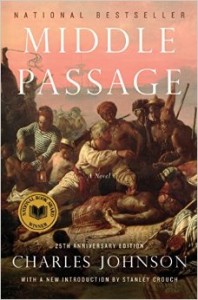 The issue of slavery is a deeply rooted social foundation that has been toiled with for generations. Educators, particularly those teaching high school, are charged with helping their students understand how the existence of such a morally reprehensible institution was even possible. As adolescents, these young students struggle developmentally to decompartmentalize a happening such as slavery. They see it simply as “wrong” with little regard to the context in which the institution is occurring.
The issue of slavery is a deeply rooted social foundation that has been toiled with for generations. Educators, particularly those teaching high school, are charged with helping their students understand how the existence of such a morally reprehensible institution was even possible. As adolescents, these young students struggle developmentally to decompartmentalize a happening such as slavery. They see it simply as “wrong” with little regard to the context in which the institution is occurring.
This type of thinking narrows student understanding of the greater historical narrative and gives way to the creation of historical villains. Without dismissing the atrocities of slavery, the challenge for educators is to engage students in contextualizing their modernist vision of slavery as a means to help students move away from villainizing toward understanding. This further requires the leveraging of critical thinking practices that allow students to reflect on the ramifications and context of this historical happening, while relating these reflections to their current social status quo.
In my classes, the presentation of slavery is something that has been, and continues to be, at the fore of my curricular considerations. While striving to give due attention to what I view as an important historical topic, my essential questions have included: How do I engage with students on a deeper level about an issue that has received ample historical attention in their curricular past? How do I guide students to think more deeply about the moral considerations people made in their choice to support the institution of slavery?
Our critical thinking, discussion, and exercise of historical contextualization is rooted in reading of Charles Johnson’s seminal work Middle Passage. A fictional tale of Rutherford Calhoun, a former slave turned escapee sailor aboard a slave trading ship, Johnson’s work presents an entire body of critical thinking dilemmas to its readers. Issues of marriage, the positive treatment of slaves by their owners, and building one’s personal legacy are considered, along with more morally reprehensible issues such as cannibalism, abandonment, and plundering of the world’s cultural relics. Johnson’s work provides a rich critical thinking foundation.
My students engage with Johnson’s work in a number of ways including careful readings, discussions, and reflective writings. Quotes from the novel are pulled apart, and students are asked to closely consider each of Johnson’s distinct vocabulary selections. Written reflections are created in which students are asked to put themselves in the contextual situation of the characters: What would you do if the enslavement of others or death were your only options? is a common question students are asked to consider.
Through Johnson’s writings, students are asked grapple with history in a way that asks them to also grapple with themselves. They are pushed to consider more than just a cleanly defined track of world history, but to dig more deeply into a morally muddy time of the past.
To demonstrate critical thinking skills, students produce a portfolio writing that is used as a major assessment tool. Through these writings, growth is measured in their ability to develop and articulate a personal perspective, their confidence in reason when interpreting historical context, and their examination of implications or consequences of slavery to our modern era. Rubrics are used to guide students toward showcasing their thinking in clear and concise ways. Additionally, rubrics are used in conjunction with the English/Language Arts team to guide student writing expectations. The overarching goal is to help young people shape their vision of the present, and to encourage their demonstration and honing of the inductive, deductive, argumentative, and analytical skills essential for 21st century learning.
Deeper examination into the moral mud of the world’s past occurred during a study of the Age of Exploration in this year’s course. Guided by the critical thinking skills created in reading Johnson’s novel, students spontaneously delved into a teaching-period-long debate about whether the actions of explorers such as Cortés and Magellan were justified. They questioned the situations these early adventures were in, carefully considering the directives their backers had given them, and the tendencies of sea-faring culture.
By the end of the unit, students were not content to sit and let history exist as a static narrative. They were asking questions that showcased the thinking skills that will be critical for their future paths in college, the workplace, and beyond.






I NEED your lesson plan for this novel! How do I get them from you?!? I’m new to this site, so I don’t know how I am supposed to obtain things like this from other educators.